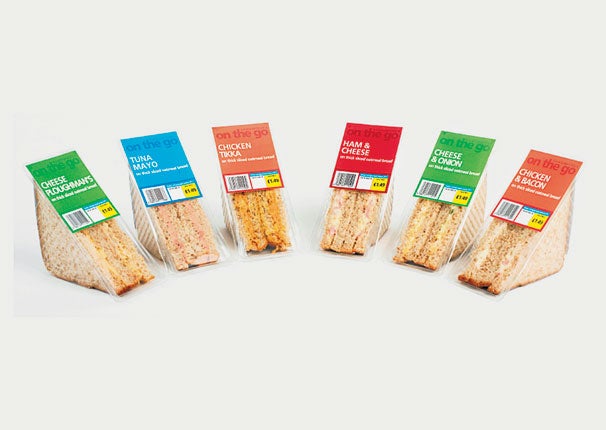Introducing the sandwich which will stay fresh for a fortnight...

At a time when most retailers are falling over themselves to assure customers that their food is fresh, made on the premises, organic or sourced locally, one company has decided to buck the trend by creating a sandwich which lasts longer than the average holiday.
The food and drink wholesaler Booker has launched a range of lunchtime goodies – from chicken tikka to cheese Ploughman's – which it insists will last for 14 days without going off. Ray Boggiano, a consultant food technologist who has spent almost a year developing the sandwich, said: "It is down to personal preference. The product is as good on day 14 and it is on day one."
Mr Boggiano explained that the secret behind the sandwich's anti-ageing is a process called gas flushing, whereby oxygen is replaced by carbon dioxide and nitrogen as part of the protective atmosphere packaging. "Gas flushing is common practice in the sales of sliced cooked meats," he added. "They commonly have a 21-day shelf life, using the same principle we have used."
Highly perishable ingredients, such as lettuce, are not used in the sandwiches. Instead, each contains an array of specially developed fillings – such as a slightly more acidic mayonnaise with a low pH and an oatmeal bread – to make them more micro-biologically stable.
"The shelf life has been validated prior to the launch and has been independently verified to ensure it remains as fresh throughout the life of the sandwich," said Mr Boggiano. "Basically it is common knowledge in sandwich manufacturing that there is a great deal of wastage because of their short shelf life."
The Booker sandwiches, which will retail at £1.49, offer a choice of chicken & bacon, chicken tikka, ham & cheese, cheese & onion, cheese Ploughmans and tuna mayonnaise.
"They look and taste great and, with a longer shelf life than most sandwiches, they are ideal to reduce retailers' wastage," insisted Booker sales director Steve Fox. "I would encourage retailers to buy these products little and often to maintain fantastic availability and make their store a destination for food to go."
However, the manufacturers of long-lasting supermarket delicacies such as this have a difficult task ahead of them if they hope to catch up with the range of food on offer to the world's frontline troops. British military ration packs are designed to have a four-year shelf life.
US military scientists, meanwhile, claimed to have developed an "indestructible sandwich" a few years ago. The range of barbecue chicken, Italian sausage and pepperoni sandwiches, which were sealed in laminated plastic pouches with chemicals to prevent water leaking and limit moisture that causes bacterial growth, were designed to last three years. They could also withstand air drops, rough handling and extremes of climate.
New Scientist, which at the time reported that American soldiers had described the sandwich range as "acceptable", predicted: "Like dehydrated egg, freeze-dried coffee and processed cheese – all originally developed for the military – the long-life sandwich will probably find its way into grocery stores."
Join our commenting forum
Join thought-provoking conversations, follow other Independent readers and see their replies
Comments
Bookmark popover
Removed from bookmarks